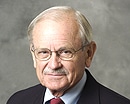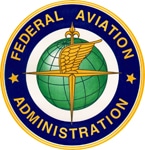
The objective is to weaken union finances, bargaining clout and political power, says The New York Times, which reports that while right-to-work laws are on the books in 22 states in the West and the South, this would be the first right-to-work law in the East, New England and the Midwest.
If the legislation passes the Republican-controlled Indiana legislature, it is expected to be signed into law by Republican Gov. Mitch Daniels, who has been identified by the Economist magazine as a possible emerging candidate for U.S. president this spring.
The UTU Collective Bargaining Defense Fund will be assisting other labor unions in an educational campaign among Indiana voters, similar to the efforts in Wisconsin that unseated two Republican senators in a recall and which resulted in voter ballot-box repeal of legislation in Ohio that curtailed public employee collective bargaining rights.
The New York Times says Democratic lawmakers in Indiana “have also hinted that they might once again flee to Illinois, as they did last year, to block votes on anti-union bills.”
According to The New York Times, 8.2 percent of Indiana’s private sector workers belong to unions, compared with 6.9 percent nationwide. “That is down from more than 20 percent three decades ago as many unionized factories have closed and largely nonunion industries like finance and retail have expanded,” reported the newspaper.
The New York Times cited a study that the portion of free riders in right-to-work states ranged from 9 percent in Georgia to 39 percent in South Dakota. And another study cited found that in the five years after states enacted right-to-work laws, the number of unionization drives dropped by 28 percent, and in the following five years by an added 12 percent, while organizing wins fell by 46 percent in the first five years and 30 percent the next five.
To learn more about the UTU Collective Bargaining Defense Fund, click on the following link:
https://www.smart-union.org/collective-bargaining-defense-fund/
Author: paul

CN said the merger, approved by the U.S. Surface Transportation Board, will make operations more efficient and customer focused.
In October, in preparation for the merger, UTU represented conductors and brakemen employed by the three CN subsidiaries ratified an implementing agreement consolidating the three properties under a single agreement.
That new agreement provides for four stand-alone general committees under the jurisdiction of one general committee – with General Chairpersons Matt Koski (DW&P, GO 325), Steve Haus (DM&IR, GO 315) and Saint W. J. Laurent (DM&IR, GO 321) merging with General Chairperson Ken Flashberger (WC, GO 987).
“The merger reduces the administration costs associated with four general committees,” said then-UTU International Vice President John Babler, who assisted with negotiations. “The implementing agreement satisfied both New York Dock, Article 1, Section 4, merger conditions and the parties’ Railway Labor Act Section 6 notices.”
Also provided by the agreement are general wage increases, additional personal leave days, up to eight new extra board positions, a reduction in the number of years to qualify for additional weeks of vacation, a new bid rule and prior-rights zones.
Additionally, the new agreement provides terminal protection for DW&P and DM&IR trainmen, preserves no-furlough clauses on each former property, reduces call windows to four hours, guarantees consecutive days off for extra boards and pools, and establishes an order of call when the extra board is exhausted.
“General Chairpersons Flashberger, Koski, Haus and Laurent played key roles in the negotiations, each recognizing the value of a negotiated settlement, and came to the negotiations fully versed on their respective agreements,” Babler said in October. “They came prepared to make the tough choices that would best suit their members’ needs in the short-term and long-term. They also did a remarkable job holding town hall meetings to inform members about the implementing agreement,” Babler said.

UTU Medical Consultant
When I want to get started on a job that I have been putting off, I eat a few chocolate chip cookies (think sugar), and my enthusiasm picks right up and I am on my way.
Unfortunately, there is a downside to our easy access to energy-packed food – sugars.
If we eat more sugars (think calories) than we burn up in a day, our bodies, being good stewards, turn this spare energy into fat. When we continue this, day-after-day, excess fat can make us vulnerable to many medical conditions, such as high blood pressure, diabetes, heart attacks and liver ailments.
Please note that I say sugars, not just sugar, since there are many sugars, and newer information indicates which ones we eat may make a difference.
Table sugar contains both fructose and glucose. Some believe that high fructose corn syrup, a relatively new product, which is added to sweeten many foods, especially sodas, is contributing to our obesity epidemic in America.
Despite the controversy about this form of sweetener, all agree that it can be sweeter than table sugar, and appears more likely to turn into fat in the liver and may not be good for us. While the jury is still out, please consider limiting foods containing this additive.
Our ancestors took in their sugars, including some fructose, through sweet fruits, such as berries, that also contain a lot of fiber. The mixed in fiber slows the sudden surge of sugars into our bloodstreams, such as may occur after a soft drink, and many experts believe the slowing is beneficial. Turning that idea around says that sugar, without fiber, is less healthy for us.
Sugar substitutes are now very available in the form of saccharine, aspartame (Equal), sucralose (Splenda) and Stevia. Studies have been inconclusive as to whether each is totally safe, but if one helps you to keep down your sweet intake, do consider using it in small quantities.
The bottom line is that each of us should work hard to keep our calorie intake in balance with our calorie expenditure so we are not carrying much excess fat.
The bathroom scale and our waistlines are the best monitors of how we are doing. Reading labels on packaged foods about sugar content also can help.
Fructose in processed foods appears to be especially worrisome. While I believe we will one day learn which of us can or should eat what foods to our best benefit, I personally have found that a diet high in protein and lower in carbohydrates and fat helps me most in keeping my own weight down while still having the energy to pick on myself and UTU members about our eating habits.
WASHINGTON –The Department of Labor’s Occupational Safety and Health Administration has created a webpage to provide worker and employer guidance during winter weather:
The web page includes links to guidance from OSHA, the Federal Emergency Management Agency, the American Red Cross, the National Weather Service, the National Oceanic and Atmospheric Administration, the Centers for Disease Control and Prevention and the National Safety Council.
On the webpage, OSHA will transmit information relating to worker safety that includes tips on avoiding:
* Being struck by falling objects such as icicles, tree limbs, and utility poles
* Accidents due to slippery roadways
* Carbon monoxide poisoning
* Dehydration, hypothermia and frostbite
* Exhaustion from strenuous activity
* Back injuries or heart attack while removing snow
* Slips and falls due to slippery walkways
* Electrocution from downed power lines and downed objects in contact with power lines
* Burns from fires caused by energized line contact or equipment failure
* Falls from snow removal on roofs or while working in aerial lifts or on ladders
* Roof collapse under weight of snow (or melting snow if drains are clogged)
* Lacerations or amputations from unguarded or improperly operated chain saws and power tools, and improperly attempting to clear jams in snow blowers
OSHA also offers the following winter-weather tips for workers and employers:
* Assume all power lines are energized and stay well clear of any downed or damaged power lines
* Make certain all powered equipment is properly guarded and disconnected from power sources before cleaning or performing maintenance
* Use caution around surfaces weighed down by large amounts snow or of ice
* Scoop small amounts of snow and using proper lifting form to avoid over-exertion or injuries
* Clear walking surfaces of snow and ice and use salt or its equivalent where appropriate
* Employers should provide and ensure the use of fall protection and provide and maintain ladders
* Stay in the vehicle – do not leave the vehicle unless help is visible within 100 yards
* Wear reflective clothing, and eye, face and body protection
* Establish and clearly marking work zones
* Use engineering controls, personal protective equipment and safe work practices to reduce the length and severity of exposure to the cold
UTU-represented trainmen and engineers employed by Evansville & Western Railroad overwhelmingly ratified a new five-year agreement, while UTU-represented trainmen and engineers employed by Iowa Interstate Railroad ratified a new six-year agreement.
The Evansville & Western agreement provides for substantial wage increases with full back-pay, certification pay for conductors and engineers, freezes health care insurance contributions, preserves cost-of-living adjustments, and improves working conditions and seniority moves.
UTU International Vice-President Dave Wier, who assisted with the negotiations, congratulated General Chairperson R.W. “Red” Dare (Canadian National, GO 433) and Local 1525 Chairperson Danny Kautzman for “the great effort put forth in negotiating an agreement with dramatic improvements in wages and working conditions. The wage increases, coupled with the certification pay, provide members with outstanding increases in the daily rates of pay,” Wier said.
The Iowa Interstate agreement provides for wage increases, a boost in the meal allowance, plus improvements in vacation provisions, working conditions and allowances. Also established is a seniority maintenance provision, and covered employees will gain coverage under the UTU National Health and Welfare Plan as well as the national dental and vision plans.
Wier also assisted with the Iowa Interstate negotiations. He praised General Chairperson Dave McFarland, Local 258 Chairperson Norman Kitchen, and Local 258 President Jesse West for “the extraordinary effort put forth in negotiating a solid agreement with substantial improvements in wages, working conditions and health care benefits. The National Health and Welfare package is far superior to the former Iowa Interstate plan in all aspects and was an integral part of the negotiation process,” Wier said.
Evansville & Western operates some 124 route miles between Evansville, Ind., and Owkawville, Ill, with a branch to Mt. Vernon, Ind. Iowa Interstate operates almost 600 route miles between Council Bluffs, Iowa, and Chicago, with a branch to Peoria, Ill., and connects with all major North American rail systems.
UTU members in Massachusetts covered under the National Rail Contract and other UTU plans will not face a tax penalty for the 2011 state tax year for dependent child maternity benefits.
The Massachusetts state legislature had mandated coverage of dependent child maternity benefits. But because the collectively bargained National Rail Contract does not include this benefit, the coverage was deemed to be non-credible health care coverage under state tax law and subject to substantial state tax penalties for the 2011 tax year.
UnitedHealthcare, working with state officials, successfully gained a tax exemption for rail workers in Massachusetts covered under the National Rail Contract.
As a result, the State of Massachusetts has confirmed that the following plans are now credible for the 2011 tax year:
* The National Health and Welfare Plan
* The National Railway Carriers/UTU Health and Welfare Plan
* The GA-46000/ERMA (National Retirement Major Retirement Benefit Plan) in combination with the GA-23111 Plan E for early retirees
All Massachusetts residents covered under these plans will receive a written communication from the State of Massachusetts indicating that their coverage will be considered creditable for 2011, and the 1099HC forms that are sent to them in early January for inclusion with their state tax returns will indicate that their coverage in 2011 was creditable for the entire year.
United Healthcare advises that this certification is for the 2011 tax year only, and does not apply to 2012. UnitedHealthcare is working to resolve his issue on a s to resolve this issue on a permanent basis.

The new rules are in response to a Colgan Air crash near Buffalo, N.Y., in 2009 that killed 50 people.
Under the new rules:
• Flight-duty times would range from nine to 14 hours. Additionally, rather than just counting flight time and rest time, flight-duty time would include the time spent flying to the job, which, as in railroading, is called deadheading;
• Flight-time limits will be eight or nine hours, depending on the start time of the pilot’s entire flight duty.
• Minimum rest periods will be 10 hours between shifts. The pilot must have an opportunity for eight hours of uninterrupted sleep during that rest period.
• Pilots must have 30 consecutive hours of rest each week, which is a 25 percent increase over current standards.
The new rules do, however, allow pilots to sit at the controls for an hour longer per day, from eight hours to as many as nine.
Also, pilots flying late at night, across multiple time zones or on schedules involving numerous landings and takeoffs, will work shorter shifts than those flying during the day.
The rule also requires pilots to sign paperwork verifying that they are rested before each flight, in an attempt to educate them and highlight the need for personal responsibility.
The National Transportation Safety Board has urged safety enhancements to reduce pilot fatigue for decades. Although the board didn’t blame fatigue as a cause in the Colgan crash, it found that neither pilot appeared to have slept in a bed the night before the accident.
The rules will take effect in two years, and cost passenger airlines $297 million over 10 years. The rules will, however, save airlines $247 million to $470 million in reduced accidents and lower health-care expenses for pilots, according to the FAA.
A fund has been established for the family of Local 1957 member Stacy Rieger, a BNSF conductor, who was killed Dec. 18 when his head reportedly struck a bridge beam while leaning over the railing of his moving locomotive’s side running board in an attempt to check the fuel level in a fuel-tank sight glass.

Rieger’s wake is Wed., Dec. 21, from 5 p.m. to 8 p.m. at Broussard’s Funeral Home in Silsbee, Texas. The funeral will be Thurs., Dec. 22, at 4 p.m at Crestwood Baptist Church on Highway 69 in Lumberton, Texas.
Rieger, 41, of Lumberton, was a four-year member of Local 1957, Silsbee.
He is survived by his wife, Ann, four daughters and a stepdaughter.
According to reports, Rieger, after striking his head, tumbled from the locomotive down a 48-foot embankment into the Navasota River. Emergency responders, summoned by the locomotive engineer, pronounced Rieger dead at the scene.
The nighttime accident occurred some 80 miles northwest of Houston, in Grimes County, at milepost 26.8 of the BNSF Conroe Subdivision.
The Federal Railroad Administration is investigating the accident.
Rieger is the tenth UTU member killed on duty in 2011, two more than were killed during calendar year 2010.
Once again, the Department of Labor’s Occupational Safety and Health Administration (OSHA) has ordered a railroad to reinstate an employee and pay him back wages for violating an employee’s rights as a whistleblower.
In the latest OSHA order, Union Pacific was ordered immediately to reinstate an employee in Idaho and pay him back wages, compensatory and punitive damages and attorney’s fees totally more than $300,000.
The unidentified UP employee had filed a whistleblower complaint with OSHA, alleging suspension without pay and then termination 23 days after notifying the company of an on-the-job injury. OSHA’s investigation found reasonable cause to believe that the disciplinary charges and termination were not based on the complainant breaking a work rule, but on the complainant reporting an injury to the railroad, in violation of the Federal Railroad Safety Act’s whistleblower protection provisions.
“The safety of all workers is endangered when employers intimidate injured workers so that they do not report injuries,” OSHA said in assessing the penalties.
This was the fifth OSHA whistleblower violation against Union Pacific since 2009. BNSF, Metro North Railroad, Norfolk Southern and Wisconsin Central also have been penalized by OSHA for violating workers’ whistleblower rights.
As UTU rail members are painfully aware, railroads have routinely tied managerial bonuses to low reportable injury rates among employees, creating a culture of fear through harassment and intimidation – a culture that discourages the reporting by workers of on-duty injuries and allows railroads to claim an industry safety award accompanied by glowing press releases as to its low employee-injury rate.
After collecting file drawers full of verified complaints from members of carrier harassment and intimidation following an on-duty injury, the UTU’s National Legislative Office was successful in shepherding through Congress the Federal Rail Safety Act of 2007.
The law’s purpose is to protect rail workers from retaliation and threats of retaliation when they report injuries, report that a carrier violated safety laws or regulations, or if the employee refuses to work under certain unsafe conditions or refuses to authorize the use of safety related equipment.
An employer also is prohibited from disciplining an employee for requesting medical or first-aid treatment, or for following a physician’s orders, a physician’s treatment plan, or medical advice.
Retaliation, including threats of retaliation, is defined as firing or laying off, blacklisting, demoting, denying overtime or promotion, disciplining, denying benefits, failing to rehire, intimidation, reassignment affecting promotion prospects, or reducing pay or hours.
A rail employee may file a whistle-blower complaint directly with OSHA, or may contact a UTU designated legal counsel, general chairperson or state legislative director for assistance.
A listing of UTU designated legal counsel is available at https://www.smart-union.org/td/designated-legal-counsel// or may be obtained from local or general committee officers or state legislative directors.
To view a more detailed OSHA fact sheet, click on the following link:
www.osha.gov/Publications/OSHA-factsheet-whistleblower-railroad.pdf
The Department of Homeland Security has been ordered by a federal district court in Nebraska to cease assessing fines against Union Pacific and seizing its rolling stock following discovery of illegal narcotics on trains originating in Mexico and delivered by Mexican railroads to UP at the Mexican border.
The court said U.S. Customs and Border Protection — an agency of the Deparatment of Homeland Security — exceeded its authority in assessing the fines and seizing the railcars in which the illegal narcotics were found.
UP, which sued the federal government, said it had been wrongly assessed more than $37 million in fines and penalties by Customs and Border Protection after the illegal narcotics were found in rail equipment delivered to UP at the Mexican border crossings at Brownsville, Texas, Calexico, Calif., and Nogales, Ariz. The court cancelled the $37 million in fines and penalties.
Earlier this year, UP agreed to spend some $50 million to improve its border- crossing security, and to work more closely with Customs and Border Protection. UP has assigned railroad police, K-9 teams and private security contractors to its border crossings in an effort to find those narcotics when the railcars are delivered by the Mexican railroad. UP also paid to construct an office and observation towers for use by Customs and Border Patrol officers.
